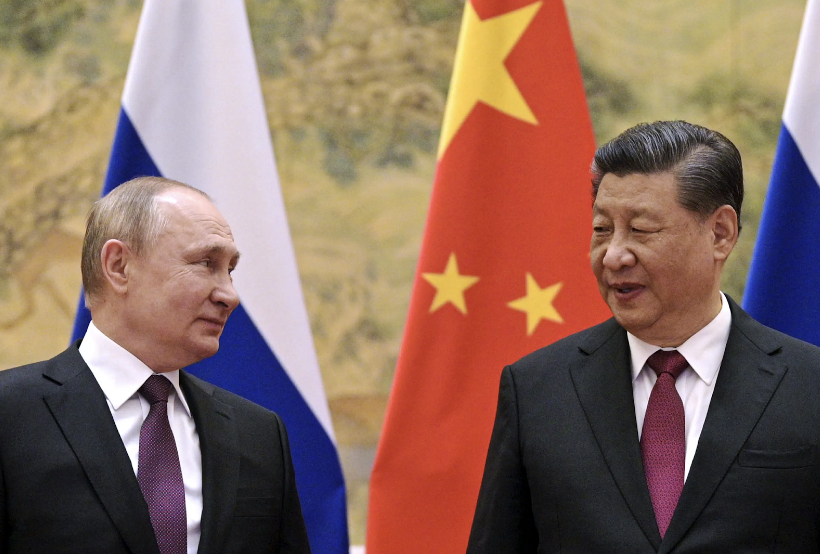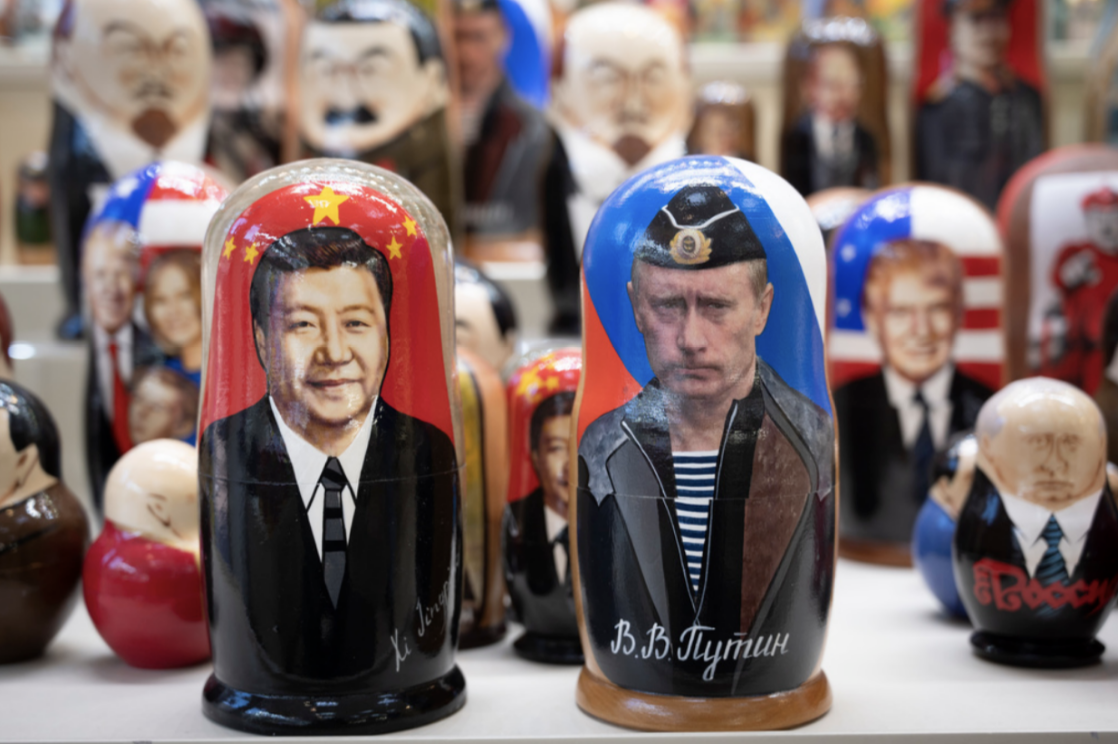Russian and Chinese Presidents Meet Despite ICC Warrant
Xi Jinping and Vladimir putin speak during their meeting in Beijing, China, Feb. 4, 2022. Photo: Anton Novoderezhkin / Sputnik Kremlin Pool Photo via AP
Chinese President Xi Jingping left Russia on the 22nd after holding two days of in person discussions with Russian President Vladimir Putin, ending the 40th occasion the two leaders have met in person in the past decade. The meeting itself was friendly and cordial, featuring a public state dinner, warm welcomes on the tarmac, and invitations of future visits of state officials between the two countries.
The specifics of the conversations held will likely never be made public, but outwardly the discussions were heavily focused on increasing international trade. Various announcements of increased trade in food and high level technologies, including a Russian built nuclear power plant in China, were joined by agreements to increase the use of the Chinese Yuan as a foreign currency alternative to the USD.
What would be a routine and productive visit between two world leaders was shadowed by the backdrop of an ongoing full scale war and the issuing of a warrant for the arrest of President Putin by the International Criminal Court just days before the meeting on March 17.
Vladimir Putin was charged under “suspicion of unlawful deportation of children and unlawful transfer of people from the territory of Ukraine to the Russian Federation since Feb. 24, 2022” and ordered to appear in person at the ICC headquarters at the Hague. Russia has since denied the legitimacy of the allegations and the subsequent legitimacy of the ICC.
The warrant obligates the 123 signatory member states to take Putin into custody should he step foot on their sovereign soil, effectively cutting off the ability of the Russian President to visit two-thirds of the world's nations. It also creates a legal foundation for maintaining harsh sanctions against Russia. As U.S. Ambassador-at-Large for War Crimes Issues, Stephen Rapp, puts it "Russia cannot gain relief from sanctions without compliance with the warrants."
For Xi, meeting with an official war criminal with an active warrant is a complicated move. China and Russia are not signatories to the Hague treaty and as such it isn’t technically against international law or norms for the two leaders to meet. In the realm of international public opinion, though, there are potential pitfalls and messages that could be interpreted from this.
Russian matryoshka dolls with portraits of the Chinese President Xi Jinping, left, and Russian President Vladimir Putin at a souvenir shop in Moscow, Russia, Tuesday, March 21. Photo: Dmitry Serebryakov / AP
For their part, the two world leaders completely refrained from speaking about Putin’s warrant publicly, instead shifting attention to economic partnership and the 12 point peace proposal in Ukraine floated by China last month (largely ignored for its lack of conciliation to Ukraine).
The proposal and China’s potential role as a mediator between Ukraine and Russia was something specifically highlighted as a result of Xi’s trip. In the official brief of the meeting released by China, Xi’s office expressed that “this state visit to Russia is a journey of friendship, cooperation and peace,” further pushing the image of a peacemaker.
Reporting from China, the media is steadfastly supportive of the visit to Russia, often citing it as a show of strength in the face of increased US interference and a show to the rest of the world that China is ready to take a leading role in a non-Western structure. The message that a Xi-led-China can serve as a neutral arbiter between the West and the rest of the world is gaining headway in no small part thanks to state visits like these.
This visit marks a significant milestone for Xi Jingping specifically, as it is his first international visit since the inauguration of his precedent breaking third term as President of China. By deciding to disregard the Hague and legitimizing Putin as a world leader on the international stage, all in his first international visit of his third term, Xi is undoubtedly flexing his international muscle and advocating China as a world leader.
China and Russia, by publicly disregarding the warrant served by the International Court of Justice at the Hague, advocating the use of the Yuan as an alternative in foreign exchange, and calling for the disbanding of International organizations like NATO, are advocating an alternative foreign policy path for the countries that are not generally included in the Western Sphere.
While it is easy to label increased Sino-Russian partnership as a new Cold War, it is important to note that the rhetoric behind this presented alternative is not advocating an alternative bloc; rather it is calling for the interests of individual states to be prioritized over international alliance structures. This is certainly the image China is seeking to create with Xi’s trip to China: a neutral party that promotes economic cooperation and provides a counterbalance to US/Western influence.


